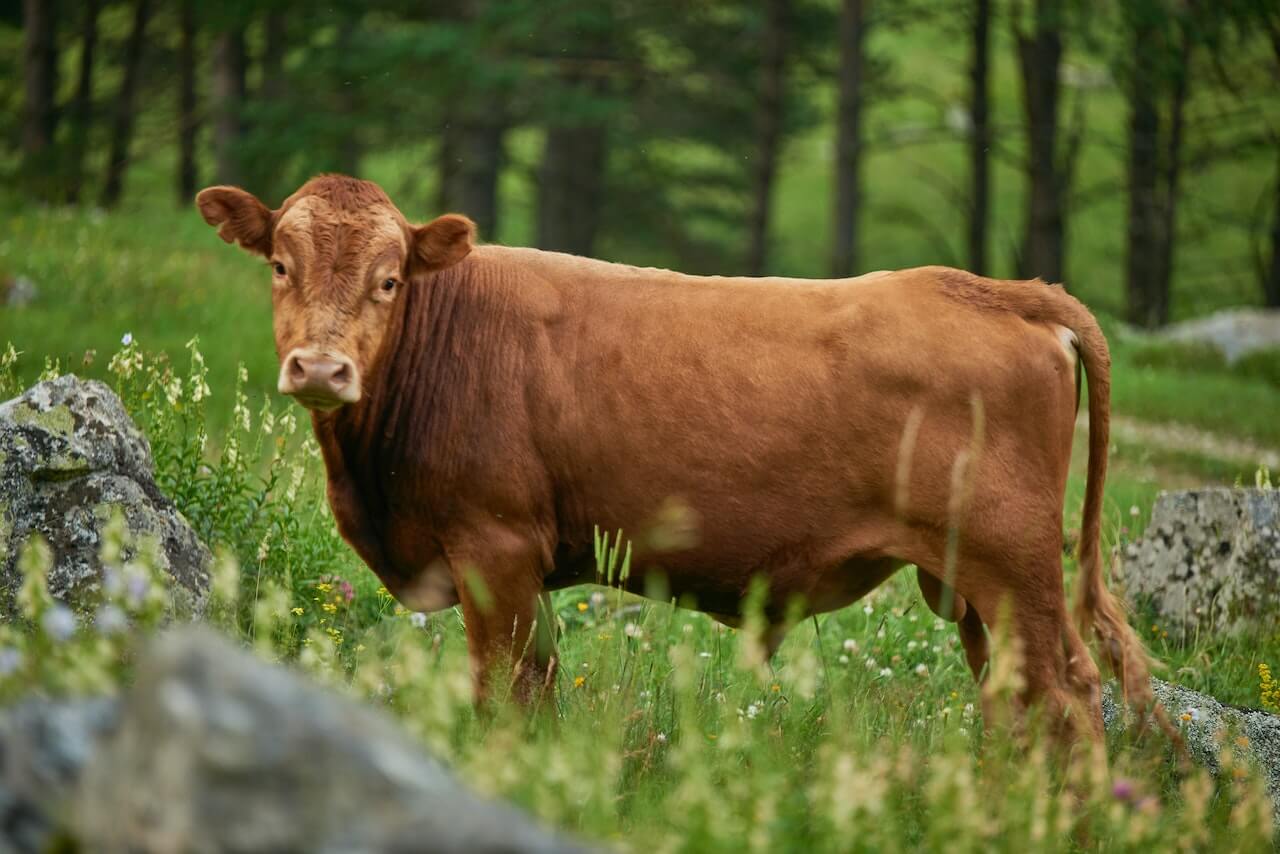The REAL Cost of Wagyu, Foie Gras, and Other ‘Luxury’ Animal-Based Foods? Animal Suffering
Foie gras, Wagyu, and other expensive animal-based dishes come with more than just a high price tag—the real cost of these “luxury” foods is animal suffering. There’s nothing luxurious about cruelty to animals, which is why you should never eat these dishes.
Wagyu
Farmers who raise and kill cows for Wagyu beef often force-feed them highly unnatural foods to fatten them up.
On “fattening farms,” cows are typically subjected to these grueling feeding routines for two to three years, causing them to gain 50% of their weight in fat. Workers at these facilities typically keep cows exclusively indoors—denying them sunlight and the opportunity to graze—to reduce their movement and maximize weight gain.
This process can be extremely painful for cows, who often suffer from damaged joints and hooves, liver damage, and chronic cramping. Cows raised for Wagyu also often experience heat stress from being forced to live in sheds that are sometimes over 100 degrees.
Foie Gras
Raising birds for foie gras (the French term means “fatty liver”) involves ramming pipes down the throats of male ducks twice each day and pumping up to 2.2 pounds of grain and fat into their stomachs—or doing the same to geese three times a day, with up to 4 pounds of grain and fat—in a process known as “gavage.”
The force-feeding causes the birds’ livers to swell to up to 10 times their normal size. Many birds have difficulty standing because their engorged livers distend their abdomens, and they may tear out their own feathers and attack each other out of stress.
Caviar
As fishing has decimated sturgeon populations in nature, caviar sellers around the world have switched to industrialized aquaculture farms. These facilities often confine sturgeons to filthy enclosures in which they have no choice but to swim through their own waste and are exposed to rampant diseases. Workers often cut female sturgeons open and remove their eggs from their ovaries while they’re still alive.
Oysters
Did you know that oysters are typically still alive when they’re served? Not much is known about the complex lives of these mollusks, but they do apparently experience fear. For example, when they sense danger, they hide inside their shells by tightly clamping shut.
Oyster fishing doesn’t just kill oysters. The process of dredging—or using a large machine to scoop out oyster beds from the ocean floor—often damages reefs and kills other species such as fish, crabs, and other shellfish.
Pâté
This meat-based paste that you might see on a charcuterie board is commonly made with the ground-up flesh and liver of pigs. It doesn’t look appetizing, and the cruelty that pigs endure in the pork industry makes this dish even more stomach churning.
Farmers tear piglets away from their mothers when they’re less than a month old. Workers cut piglets’ tails off, clip their teeth in half, and mutilate their ears—all without pain relief. Many farms force pigs to live amid their own feces and vomit—and sometimes even the corpses of other pigs.
Kopi Luwak
Also known as “civet cat poop coffee,” kopi luwak is made from coffee cherries that have been eaten and excreted by civet cats. This pricey beverage comes at an even greater price for the animals, who are snatched from their homes in nature to be exploited for novelty coffee beans. Kopi luwak farms imprison civet cats alone in tiny, barren cages, where they have no choice but to eat unnatural amounts of coffee cherries. They often gnaw at cage bars, turn in circles, and lose their fur due to the intense stress of confinement.
Tartare
Don’t be fooled by the name—“steak tartare” is just a fancy way to say “raw ground animal flesh.” Farms that raise cows for slaughter often confine them to cramped, filthy conditions that are breeding grounds for bacteria and other potentially dangerous pathogens. Consuming any animal-based food comes with the risk of contracting foodborne zoonotic diseases—or diseases that can spread to humans who touch or consume foods derived from a contaminated animal, such as meat, eggs, or dairy. Consuming raw animal flesh increases the risk of contracting foodborne illnesses even more.
*****
No animals want to be killed for their flesh. You can help ones suffering in the meat, egg, dairy, and fishing industries by going vegan. Make the compassionate switch today:

